Cat S61
Nearly two years after the launch of its first flagship smartphone, the Cat S60, the Bullitt Group has put its follow up, the Cat S61, on sale. First unveiled at MWC 2018 in February 2018, it is a significant improvement on its predecessor, but also bumps the price quite considerably – more on that later.
Other than the generic hardware improvements, it also boasts an indoor air quality sensor as well as a laser-assisted distance measurement tool.
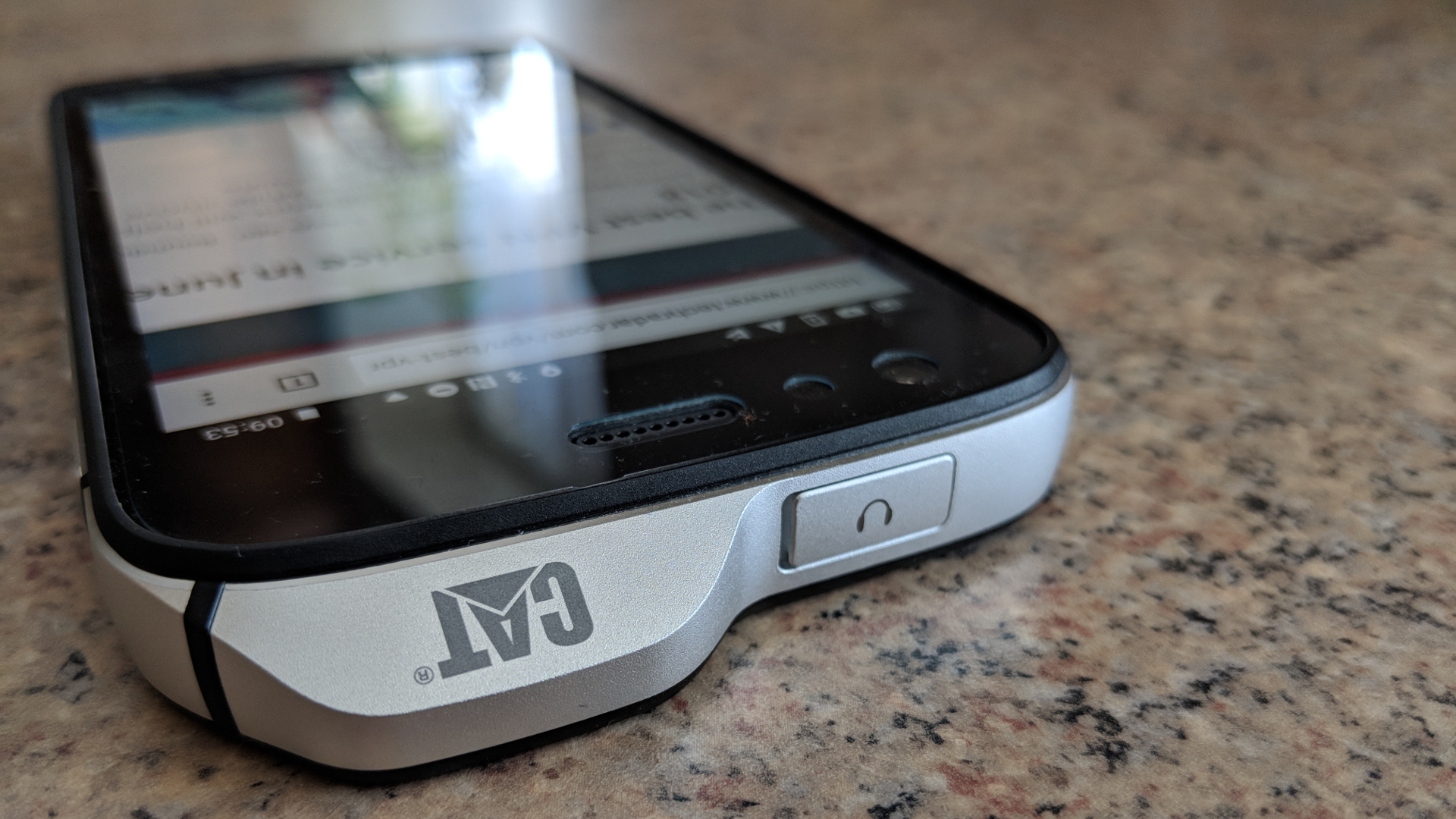
Design
There’s no phones on the market quite like the S61 when it comes to the design. For one thing, it is the only handset that has a prominent bulge, one which Bullitt describes as being a design choice which makes it distinctive from the rest of the competition.
Indeed, while its predecessor, the S60, needed a bulge to house the extra FLIR sensor, that is no longer the case in the S61, and yet the bulge is present more for, shall we say, branding reasons.
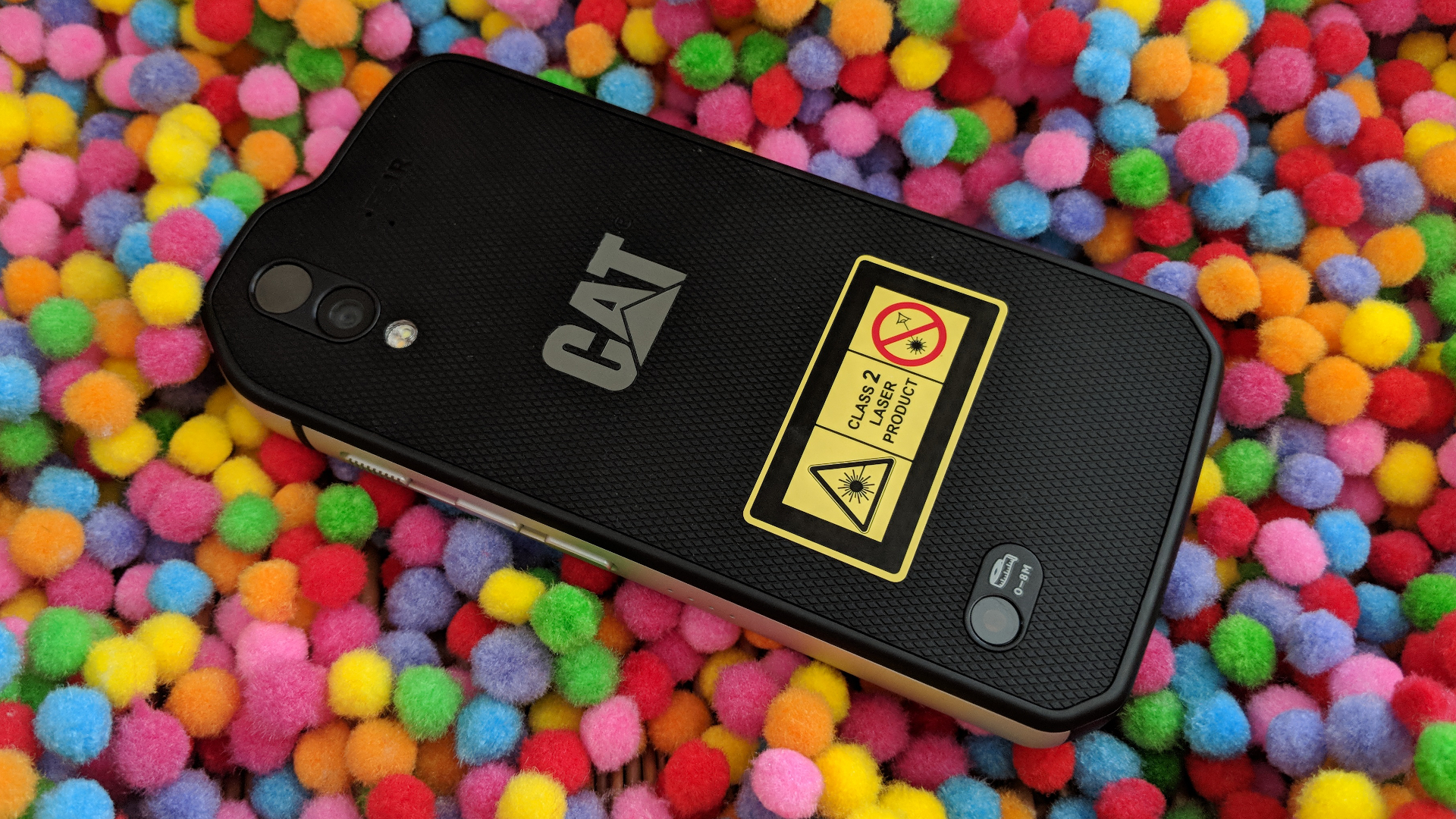
The S61 has been built with a particular audience in mind. If you’re looking for a Galaxy S9 or an iPhone X lookalike with the notch, then this is not where you will find it. This is no skinny device: at 162 x 77 x 13mm with a weight of 259g, this is a substantial piece of kit. There are no concerns about its build quality – Bullitt has fashioned this product to last.
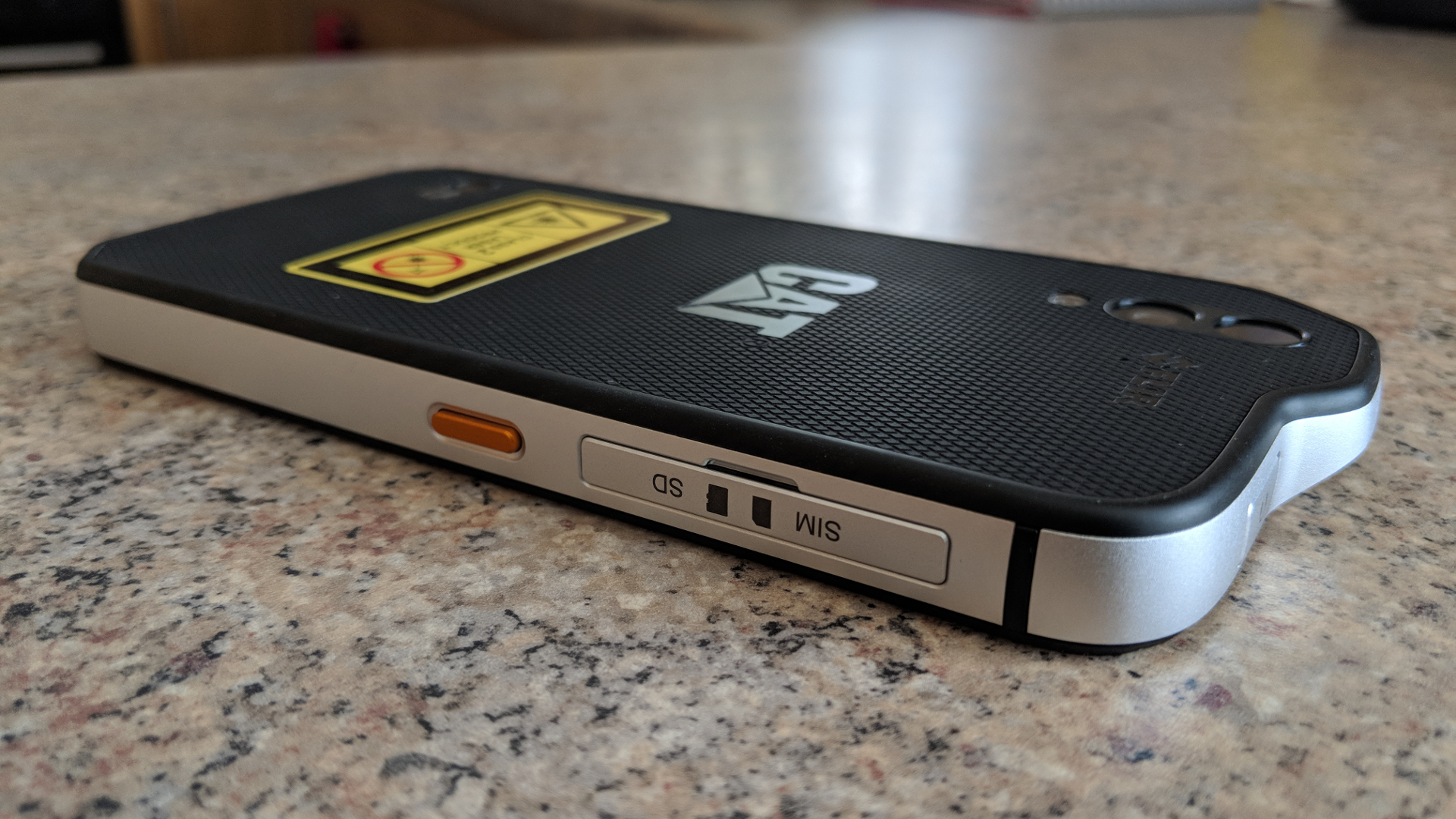
Part of the reason for that is the extra reinforcement needed to pass two important certifications, MIL Spec 810G and IP69, meaning the phone is designed to endure even high pressure water jets which are common in many industries. There’s plenty of polycarbonate and rubber to absorb shock and protect the device from drops, and a metal frame to improve its overall structure.
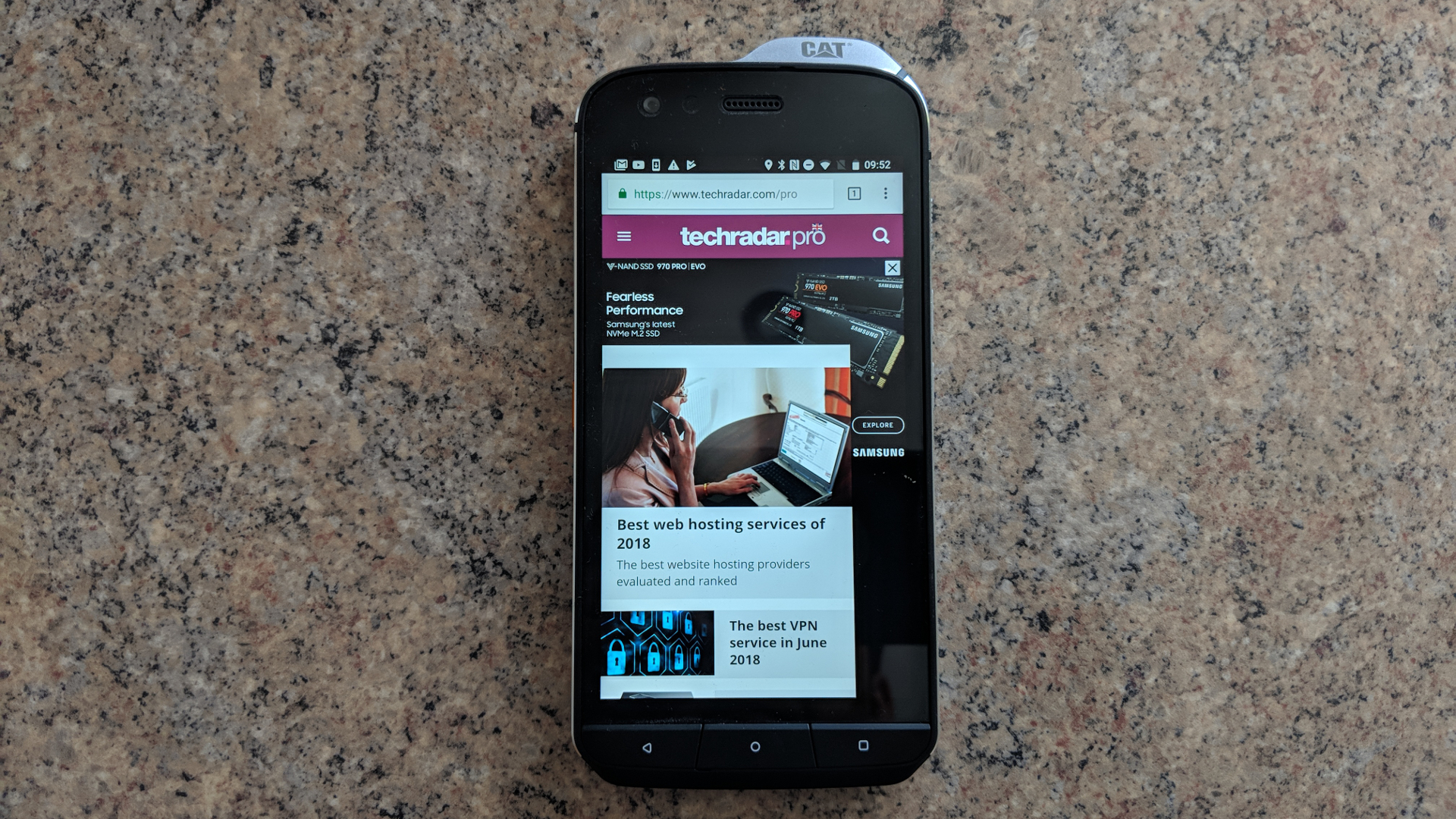
The front hosts three physical navigation keys, which are great for those – who wear gloves, for example – who want some proper feedback when pressing buttons. We are awarding additional brownie points for the status light, which some manufacturers foolishly omit.
An earphone socket is located at the top, next to the big bulge, and a bottom-firing speaker plus a Type-C connector are underneath. A combo SIM/microSD card tray can be found next to a dedicated button on the left-hand side, while the power button, an air quality sensor and two volume buttons are on the opposite side. The current model doesn’t support dual SIM functionality.
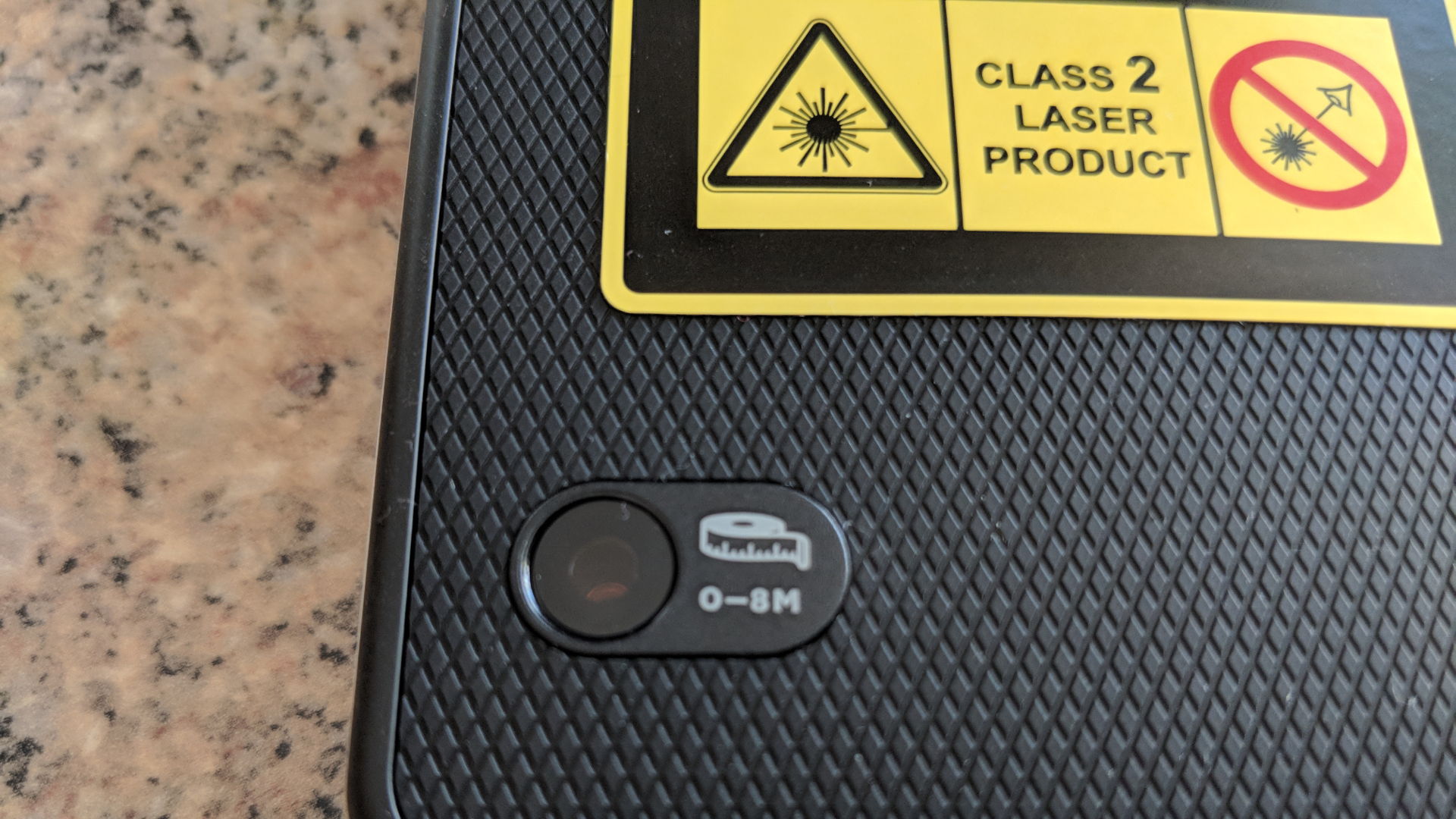
Flip the handset on its back and you will notice the FLIR camera, a traditional image sensor and a dual LED flash, a Class 2 laser (located just underneath a massive sticker) and finally, a huge Cat logo.
Specifications
The S61 was never meant to compete against the likes of the Samsung Galaxy S9, so it makes sense that it doesn’t run the latest (and often the most expensive) hardware combination. So there’s no Qualcomm Snapdragon 845 chip but the slower (and older) Snapdragon 660 instead, and ‘only’ 4GB of RAM and 64GB on-board storage, which places it just below flagship devices.
The display, a 5.2-inch Full HD model, is protected by the latest Corning Gorilla Glass 5 technology. The rest of the specification is fairly standard: 802.11ac Wi-Fi, Bluetooth 5.0, NFC, a 16-megapixel rear camera, 8-megapixel front-facer, fast charging capabilities (via Qualcomm’s Quick Charge 3.0 technology) and a tiny 18W power supply.
The device’s real selling points, however, come with the features that no other phones on the market offer. There’s the improved integrated thermal camera from FLIR, which can now locate heat sources up to 400 degrees centigrade. It has a much higher resolution compared to its predecessor and perhaps its most impressive capability is the ability to livestream content.
There’s also a laser-assisted distance measure tool that’s included on the back due to feedback from S60 users. Just bear in mind that because the laser itself is not fixed, it can only give estimates, not precise measurements, and you will need to calibrate it fairly regularly.
The third useful feature is an indoor air quality monitor that measures humidity and ambient temperature as well as the quality of the air. The results are displayed in an easily digestible traffic light format with red indicating dangerous levels of VOC (Volatile Organic Compounds).
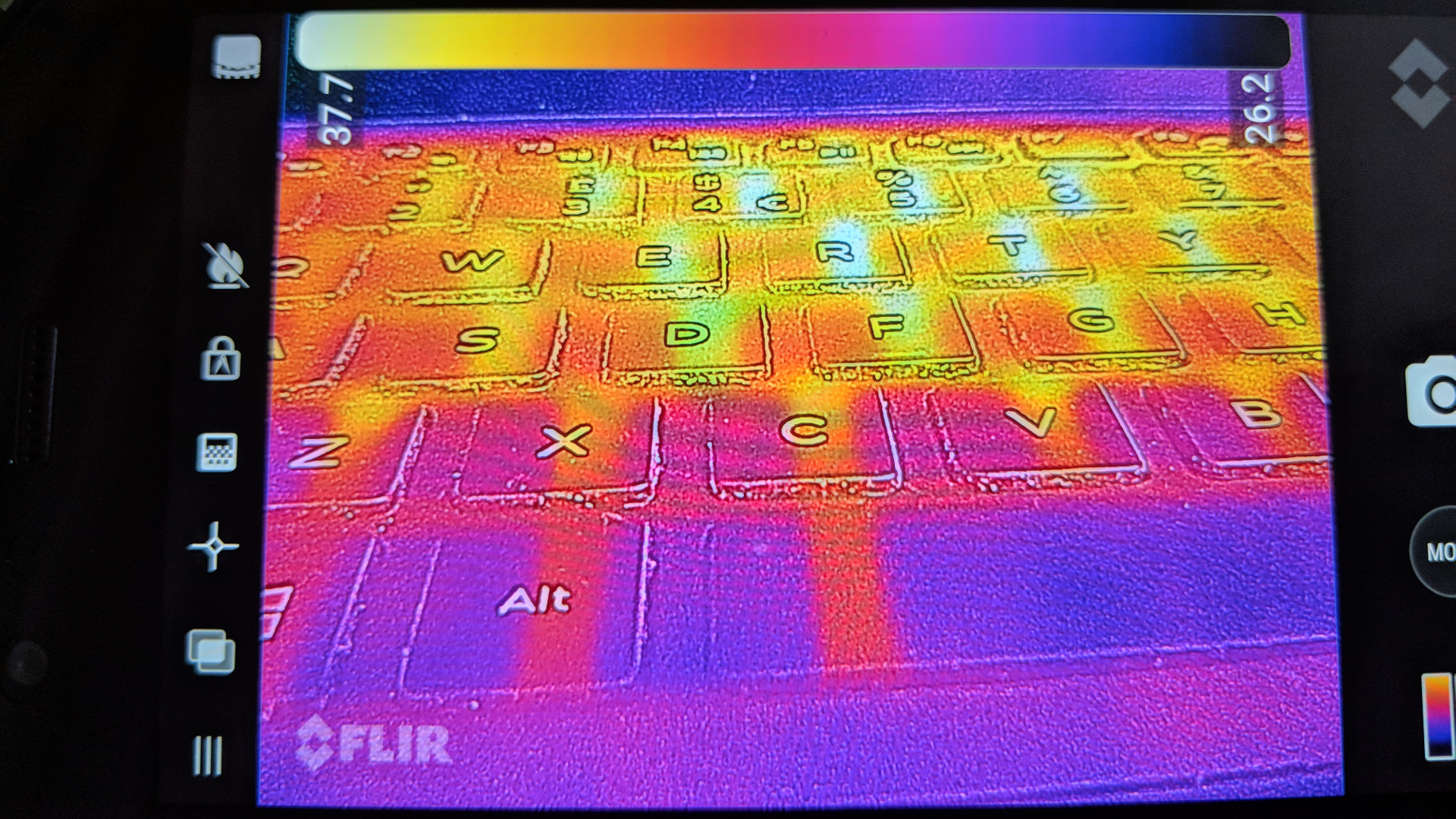
The 4.5Ah battery is one of the largest we’ve seen on a rugged device in recent memory. It recharges rapidly thanks to the aforementioned Quick Charge technology, but it might have been a good idea to implement wireless charging. Maybe that’s something for the S62.
In use
In terms of performance testing, we discovered this handset was something of a mixed bag. It held its ground on graphics benchmarks but was marginally behind Mediatek-based competitors. That said, we didn’t experience any sluggishness during the limited time spent with the device, and the only benchmark that failed to run was BaseMark, which we believe might have been down to an incompatibility with Android 8.1, the OS which powers the device.
A new Android update landed during our test which brings the security patch level to June 2018, the latest available. The display is decent without being exceptional although, truth be told, it is refreshing to get hold of a smartphone with a smaller surface area.
The screen is moderately bright and sports a higher pixel density, looking sharper than many we’ve tested before. It’s a shame about the lack of an oleophobic layer on top of the display. Expect greasy fingerprints to stick.
We liked the physical navigation buttons and the three main features of the S61 were relatively easy to get to grips with. The dedicated programmable button on the left can trigger a PTT (push-to-talk) call once paired with a third-party application.
The hump is ideally located to rest your thumb while watching a video in landscape mode. There’s also an antivirus bundled for free (AVG), OfficeSuite productivity suite and a curated app store focused on rugged device users, aptly named App Toolbox. Unlike some of its Chinese rivals, the S61 doesn’t come with dedicated bundled apps (e.g. barometer, plumb line and so forth).
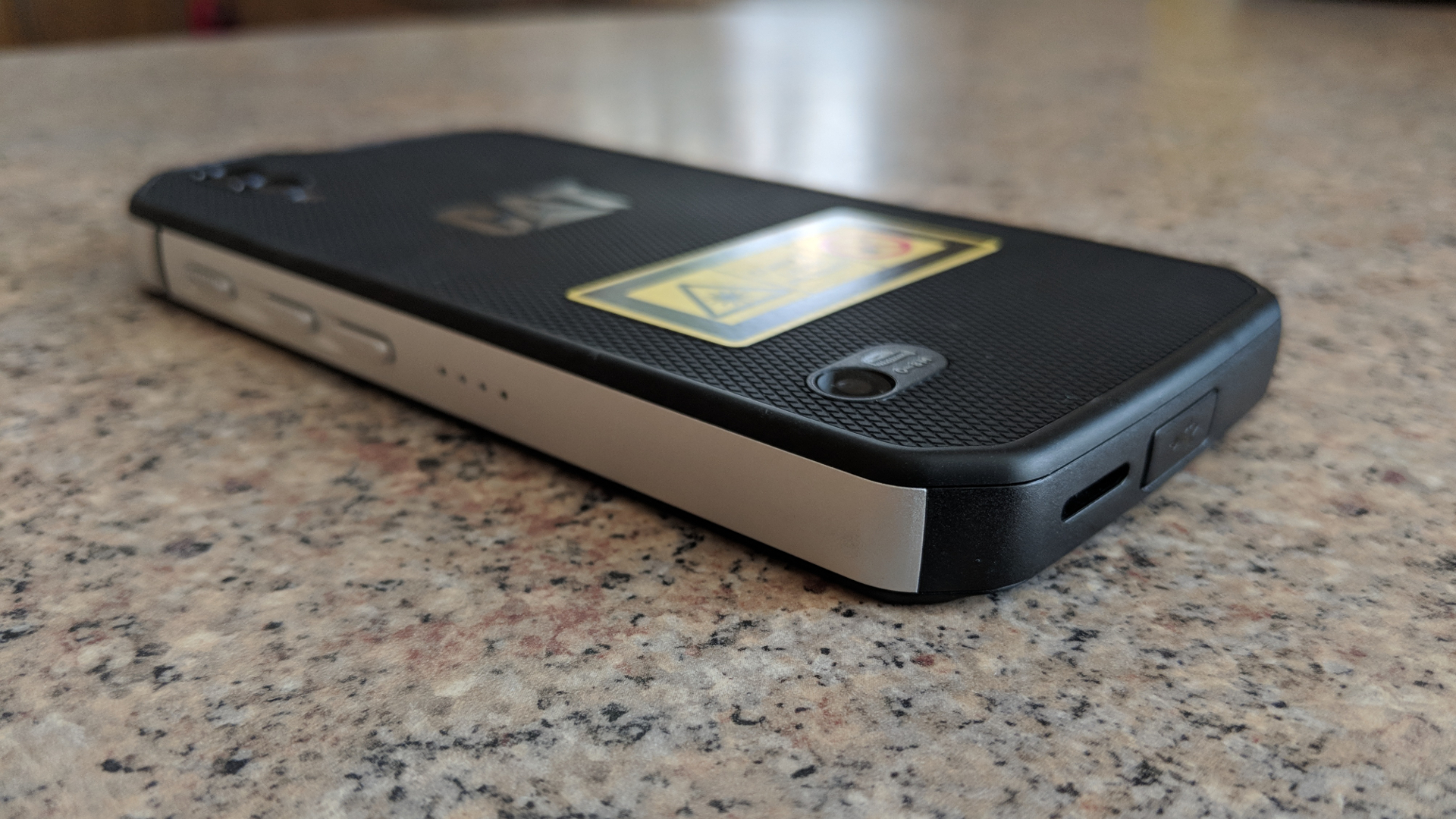
The competition
The Cat S60 is the obvious alternative for those looking for a camera with infrared capabilities. It is far cheaper (by almost 45%) but is also far more limited in its scope. Still, it’s a very capable handset if your budget or needs are restricted.
The AGM X2 on the other hand has a VOC detector but no FLIR camera. It is far more powerful with a Snapdragon 653 CPU plus 50% more system memory, but also suffers from some weird design choices like a glass back.
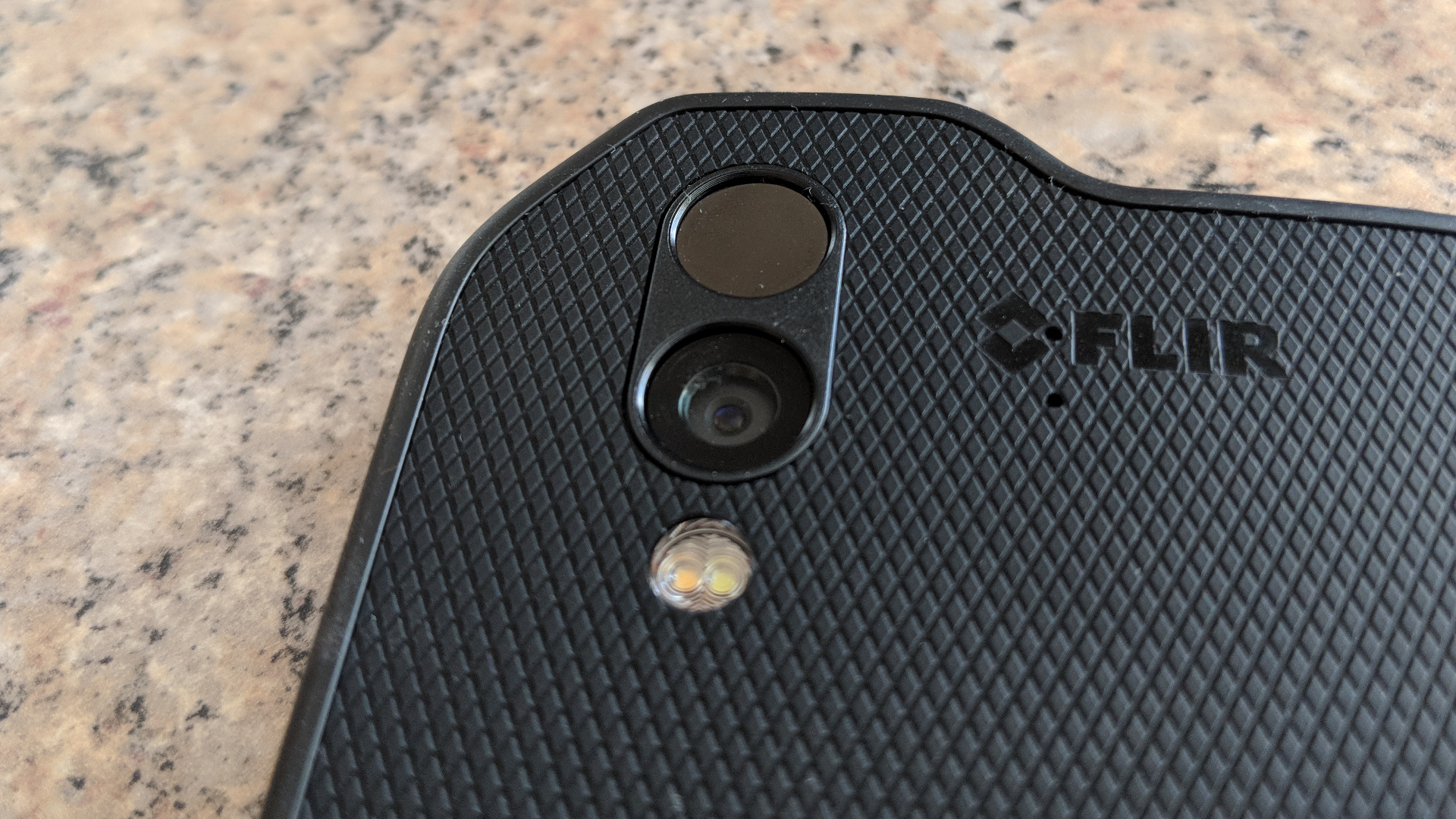
Business take
The Cat S61 is a rare beast – it is a smartphone that’s bigger than the sum of its components. By committing to provide comprehensive aftersales support – including the guaranteed delivery of Android P and security updates for at least two years, alongside free screen replacement in case of accidental damage – Bullitt Group shows that it means business, and sees the lucrative B2B market as being a major growth area.
Which brings us to the obvious question: when will Cat join the list of Android Enterprise Recommended devices? That would open a completely new market for the vendor, as the only current rugged smartphone that makes the list of 36 is the Sonim XP8, which is not widely available.
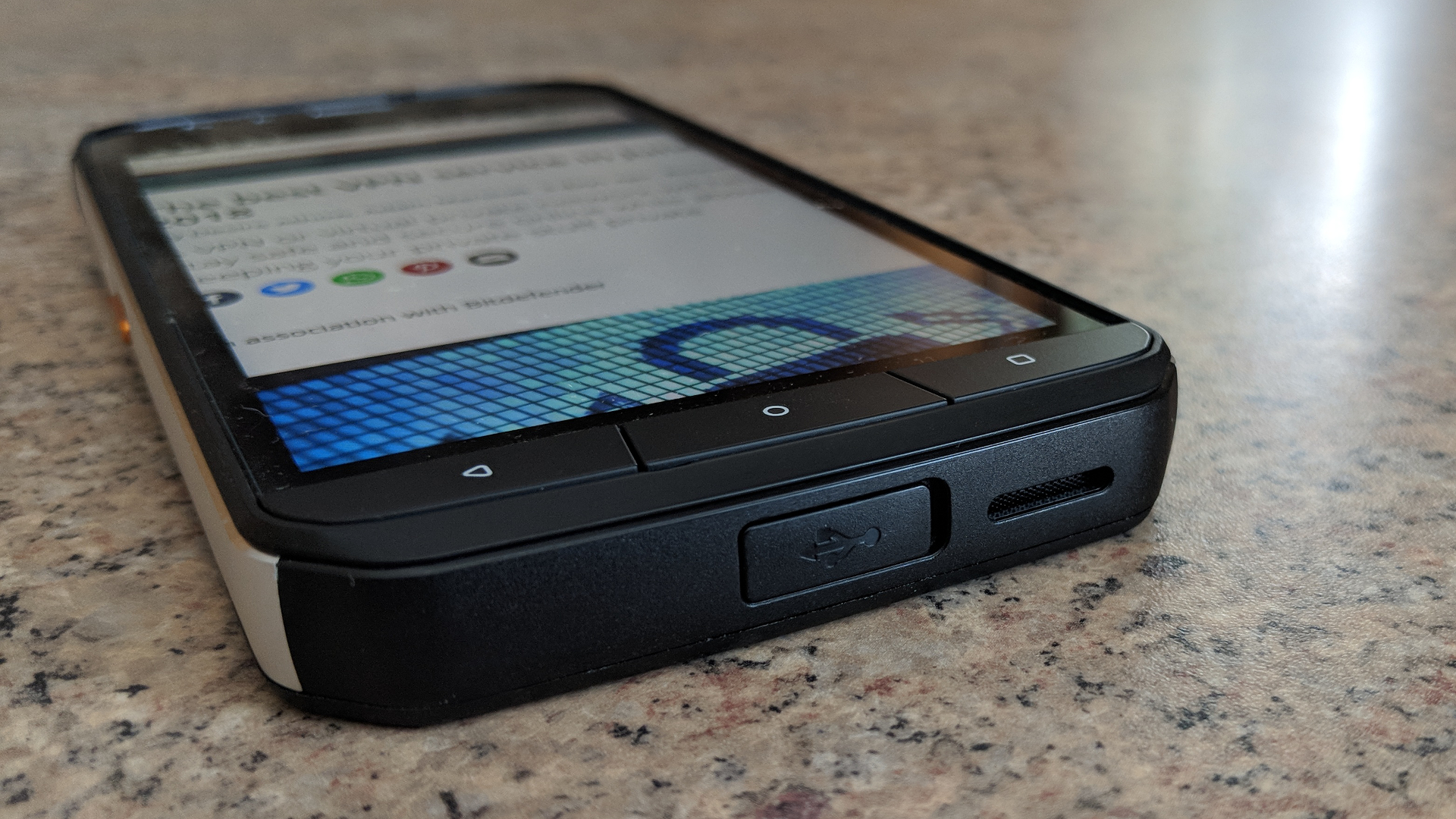
At £799 ($999), this is an expensive device, but given the hardware that’s crammed inside, it is a genuine bargain. A dedicated FLIR One Pro camera, a standalone VOC meter and a laser-assisted distance measuring tool probably cost just as much, which means that essentially you get the phone for free.
We’re therefore delighted to present the first editor’s choice award for a rugged smartphone to the Cat S61.
- We’ve picked out the best rugged smartphones
0 comments:
Post a Comment